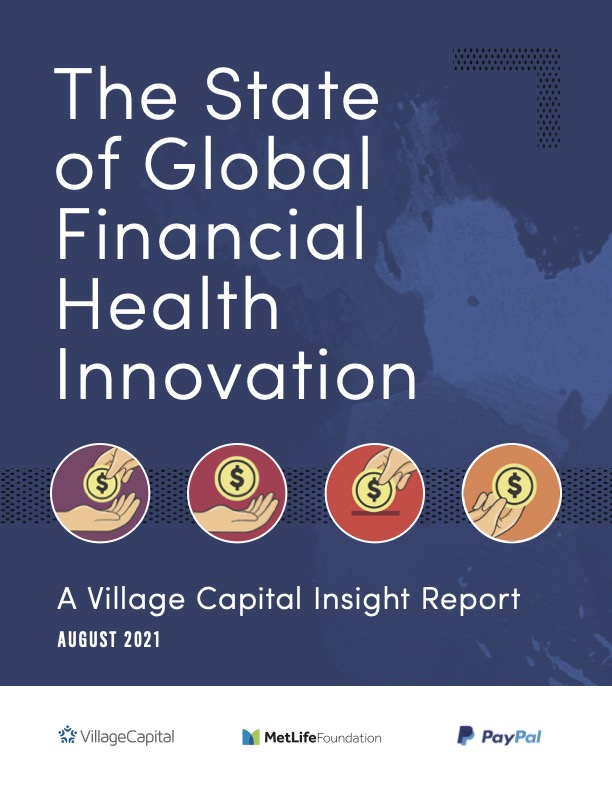Financial health (n.):
The ability to manage your income, get a loan when you need it, and plan for your financial future.

Village Capital created Finance Forward with global partners MetLife Foundation and PayPal to support tech-driven financial health startups on five continents. Two years, 120 cohort members, 800 mentors and $850,000 in grants later, we’re releasing this report to share a snapshot of global financial health innovation, and some trends we’re seeing around gender dynamics, regional distinctions and the value of accelerators. We hope you find this report useful as the field of financial health innovation evolves.

Key Insights
Finance Forward is a uniquely global program, with an applicant pool of 1,100 startups representing 22 countries. The following insights are based on analysis of that applicant pool, and paint a picture of trends around global financial health innovation.
1 - One in four financial health startups receive philanthropic funding
One in four financial health startups receive philanthropic funding
Blended finance is not new to financial health innovation – some of the earliest instances of development and philanthropic funding complementing private capital have come from the world of fintech.
Our applicant pool reveals that philanthropy is still a common tool for financing this kind of innovation, with 24% of financial health startups reporting that they have received some sort of philanthropic funding.
2 - Many regions still lag on gender diversity
Many regions still lag on gender diversity
There is a well-known gender gap in fintech: a 2020 study found that less than 7% of global fintech founders are women. Our applicant pool paints a rosier picture for impact-driven companies, with 29% of financial health startups reporting a female founder or co-founder.
The regional results vary widely, from 15% of startups in Europe reporting gender diversity, to 45% in the United States.
3 - Few financial health startups track impact metrics
Few financial health startups track impact metrics
According to the Global Impact Investment Network, fintech is the second-largest area of investment for impact investors, behind only energy. These investors increasingly expect startups to quantify their impact: 83% of impact investors consider impact metrics “very important”.
Our applicant pool demonstrates that the majority (72%) of financial health startups around the world still do not track impact metrics. In India, Latin America and the United States, fewer than 30% of financial health startups track these metrics.
4 - Financial health entrepreneurs value peer learning above all
Financial health entrepreneurs value peer learning above all
Startup accelerators have proliferated in the past decade, with hundreds of new programs around the world. Many of these accelerators market themselves as helping founders build business skills and raise investment.
Our pre-accelerator surveys asked applicants to share what they hoped to receive out of the program. We found that “Meeting Peers” was the most common response, outpacing responses like “Meeting Investors” or “Learning Business Skills”.




